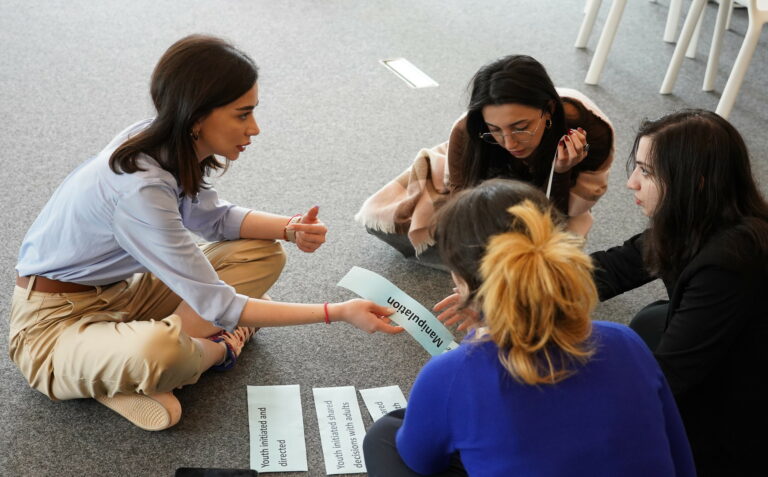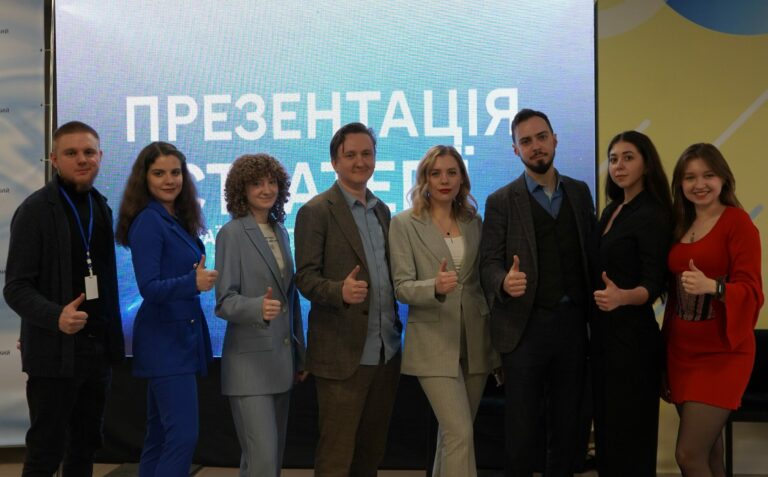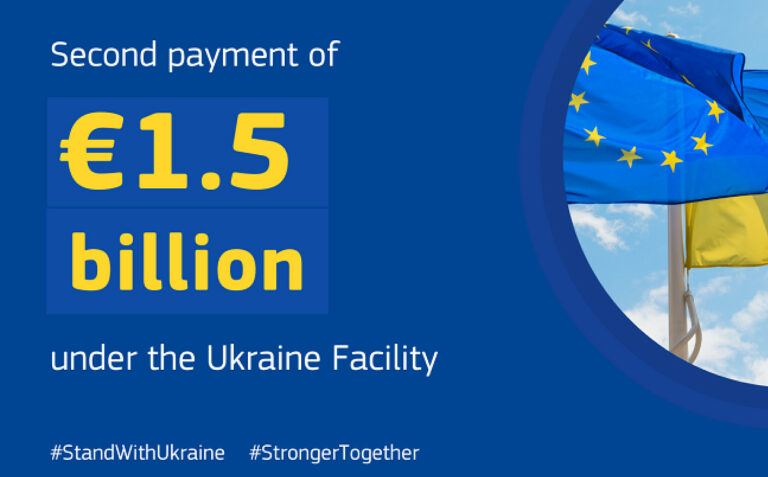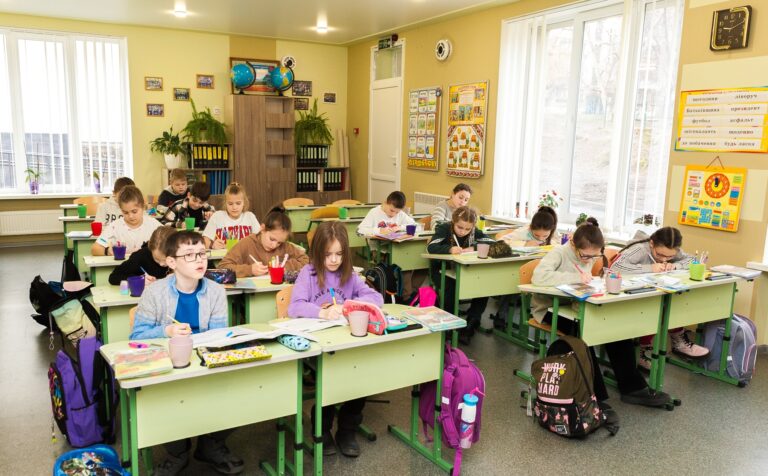
Interactive quest to help young Ukrainians recognise and avoid domestic violence
Two female experts from the NGO La Strada Ukraine, who provide counselling at the National Domestic Violence Hotline, have developed an interactive quest to teach young Ukrainians to recognise and avoid dangerous situations.
Valeria Bondar and Tetiana Kharkivska used their experience at the hotline to develop an online quest about real-life situations related to domestic and gender-based violence.
The creative format of the interactive quest ‘Live Without Illusions’ helps to ensure this sensitive topic is presented to young women and men in an attractive, digital manner. The quest offers four case studies focused on four forms of violence – psychological, economic, sexual and physical.
According to UNDP, in the current context of widespread warfare, issues related to gender-based violence (GBV) have become even more urgent: the number of domestic violence cases caused by aggressive behaviour and stress has increased. In the first half of 2022 alone, the number of calls to the National Hotline, where the quest creators work, reached more than 17,000, up from 10,000 calls in the previous year.
Last year, the experts participated in the Hack for Locals 3.0 hackathon: Together Against Violence, which was dedicated to the global initiative 16 Days of Activism Against Gender Violence, and received a grant of $15,000 from the European Union and UNDP to develop their project. The hackathon was organised by the UNDP-led Recovery and Peacebuilding Programme, with financial support from the European Union and the governments of Denmark and the Netherlands.
Find out more
MOST READ
SEE ALSO

EU4Youth Alumni Network hosts IdeaLab in Tbilisi

EU4Youth IV: Strategy of the All-Ukrainian Youth Center presented in Kyiv

European Commission disburses additional €1.5 billion in bridge financing to Ukraine

EU4DigitalUA: EU presents results of project supporting Ukraine’s digital transformation

Kamianske school in Ukraine reopens after EIB-supported reconstruction
More campaign pages:
Interested in the latest news and opportunities?
This website is managed by the EU-funded Regional Communication Programme for the Eastern Neighbourhood ('EU NEIGHBOURS east’), which complements and supports the communication of the Delegations of the European Union in the Eastern partner countries, and works under the guidance of the European Commission’s Directorate-General for Neighbourhood Policy and Enlargement Negotiations, and the European External Action Service. EU NEIGHBOURS east is implemented by a GOPA PACE-led consortium. It is part of the larger Neighbourhood Communication Programme (2020-2024) for the EU's Eastern and Southern Neighbourhood, which also includes 'EU NEIGHBOURS south’ project that runs the EU Neighbours portal.

The information on this site is subject to a Disclaimer and Protection of personal data. © European Union,







